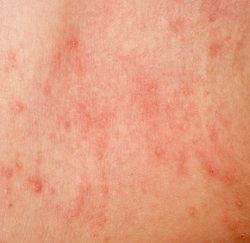Walk In Tubs, Blog
Eczema and Dry Skin

What Is Eczema?
What Is Eczema?
Eczema and dry skin
Atopic eczema is an inflammation of the skin, which tends to flare up from time to time. It usually starts in early childhood and the severity can range from mild to severe. Eczema is also called dermatitis. Most types cause dry, itchy skin and rashes on the face, inside the elbows and behind the knees, and on the hands and feet. Scratching the skin can cause it to turn red, and to swell and itch even more. Eczema is not contagious and the initial cause is not known. It is likely caused by both genetic and environmental factors. Eczema may get better or worse over time, but it is often a long-lasting disease. People who have it may also develop hay fever and asthma.
Common causes: Dry skin is not always related to an underlying condition. It may be caused by:
-
Exposure to hot or cold weather with low humidity levels
-
Harsh soaps or detergents
-
Swimming frequently in chlorinated pools
-
Itchy clothing
-
Long and hot showers or baths
-
Aging
Symptoms May Include:
- Dry, cracked, scaly skin
- Redness
- Itching, which may be intense
- Painful lesions
- Change in color where skin rashes appear
- Thickened skin where rashes appear
- Fluid filled blisters
Self-treatment: Self- care steps that may be helpful in some less- serious cases:
-
Apply moisturizers after having hot bath
-
Drink enough water to keep the skin hydrated
-
Wear protective clothing during winter
-
Avoid antibacterial soaps
-
Use mild non- soap skin cleanser
-
Avoid itchy clothing
-
Avoid excess alcohol consumption
-
Keep bath and shower time to 10 minutes or less and use warm water rather than hot water
You can prevent some types of eczema by avoiding:
- Things that irritate your skin, such as certain soaps, fabrics, and lotions
- Stress
- Things you are allergic to, such as food, pollen, and animals
NIH: National Institute of Arthritis and Musculoskeletal and Skin Diseases